Royal Aeronautical Society Podcast
The Royal Aeronautical Society is the world’s only professional body dedicated to the entire aerospace community. Established in 1866 to further the art, science and engineering of aeronautics, the Society has been at the forefront of developments in aerospace ever since.
Episodes
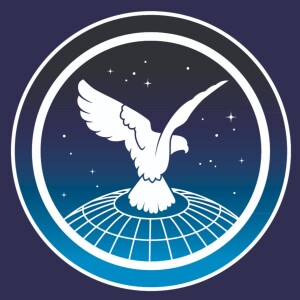
Monday Sep 03, 2018
Monday Sep 03, 2018
There has been an airfield in the vicinity of Marham, Norfolk since 1916. Marham’s history reflects an Air Force which has evolved over a 100 year period enabling the Station to provide world class Combat Air Power, using the most modern technology available, as and when it is required.
2018 sees a pivotal year in Marham’s already considerable history. The transition from Tornado GR4, the workhorse of RAF Combat Air Power for over 3 decades, to F35B Lightning, a truly Next Generation capability, has challenged all areas of the Station. These changes and the transition to Lightning, epitomise the change being seen across the whole of the RAF as we step into our next 100 years.
The lecture will provide the audience with an insight into current Tornado GR4 operations before looking at how Marham is being transformed to operate F35B Lightning. The lecture will focus on how this transition to F35B Lightning is changing ‘business as usual’; the security challenge, the requirement to better understand digital communications and logistics and our relationship with the Royal Navy as we look ahead to operations from land and sea.
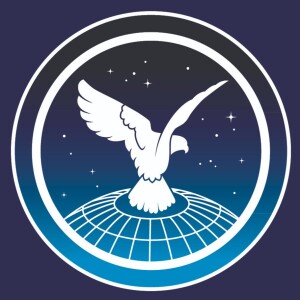
Tuesday Aug 21, 2018
Tuesday Aug 21, 2018
“It seems to me that....we frequently shot ourselves in the foot by making aircraft, engines or organisations either too large or too small. The right size really does matter.”
In his lecture, Peter Hearne uses cases from his long career in aviation to illustrate his theme, and shows where he believed the British aviation industry went right and wrong after the Second World War.
After looking at the merits of Flying Boats using his experiences working on the Saunders Roe SR 45 Princess, Hearne turns to the advantages and disadvantages of the de Havilland Comet, Vickers 1000 and Boeing 707s and their consideration by his then employer, British Overseas Airways Corporation.
Hearne started the second stage of his career in 1959 when he moved to Elliott Brothers to head up one of its first groups involved in the development of electronic systems for military projects. Over the next thirty years he climbed the ranks of what became GEC Marconi and became involved with a diverse range of major projects and uses his knowledge of the BAC TSR2, SEPECAT Jaguar, Tornado and F16 to illustrate his theme. Peter Herne retired as Chairman of Marconi’s Avionics Group in 1984 and served as President of the Royal Aeronautical Society between 1980 and 1981.
The Lecture was dedicated to the memory of Alan Purnell and was presented to the Royal Aeronautical Society’s Historical Group on 28 April 2004. The podcast was edited by Mike Stanberry FRAeS and it was digitised thanks to a grant from the Royal Aeronautical Society Foundation.
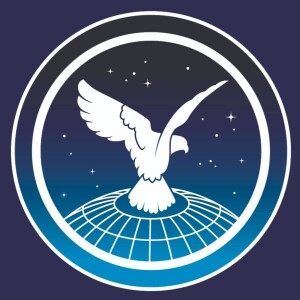
Tuesday Aug 21, 2018
Tuesday Aug 21, 2018
The Apollo 15 Command Module Pilot, Lt. Col. A. M. ‘Al’ Worden, takes a group of his fellow test pilots through the Apollo 15 voyage to the moon, as observed from the pilots’ seat. After a break to see the NASA film Apollo 15: in the mountains of the moon, Worden discusses the aftermath of the flight and NASA’s future programme.
The Lecture was presented to the Royal Aeronautical Society’s Test Pilots Group on 3 May 1972. The podcast was edited by Mike Stanberry FRAeS and it was digitised thanks to a grant from the Royal Aeronautical Society Foundation.
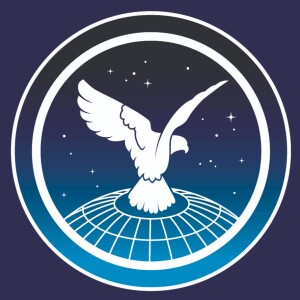
Tuesday Aug 21, 2018
Tuesday Aug 21, 2018
The Royal Aeronautical Society opened its first purpose-built lecture theatre in style, when it asked the holder the Royal Aero Club’s Pilot Licence number 1, Lord Branbazon, to cut the ribbon.
The recording was made at an event to mark the opening of the Royal Aeronautical Society’s Lecture Theatre on 2 December 1960. The podcast was edited by Mike Stanberry FRAeS and it was digitised thanks to a grant from the Royal Aeronautical Society Foundation.
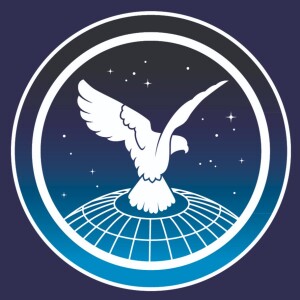
Tuesday Aug 14, 2018
Tuesday Aug 14, 2018
This years Amy Johnson Lecture speaker Air Vice Marshal Susan Gray talks about women in Aviation and the RAF over the past 100 years; commemorating those inspiring women that came before her, whilst reflecting on her own 33 years of Service. She discusses the challenges and achievements along the way to becoming the first, and only, female 2-star Engineer in the Services. Changes in society, culture and technology are explored, whilst Gray discusses what this means for, and how we inspire, the next generation of female Engineers.
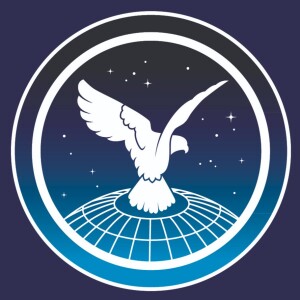
Tuesday Jun 26, 2018
Tuesday Jun 26, 2018
The terrorist attack against the United States on September 11, 2001 was a watershed event for many different reasons, not the least of which was the 16 year tort litigation against airlines, security companies and other aviation related defendants that ensued and recently was concluded.
Desmond Barry of the Condon & Forsyth law firm was the lead counsel for American Airlines and the court appointed Defense Liaison Counsel in that litigation, and will highlight the various legal, factual and administrative issues involved and explain how they ultimately were resolved.
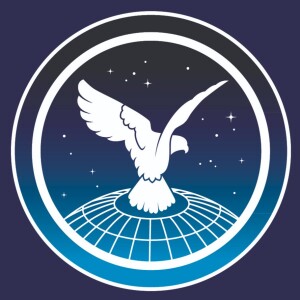
Friday Jun 08, 2018
Friday Jun 08, 2018
British Aerospace’s first Typhoon pilot and then Director of Flight Operations for BAe’s Military Aircraft Division, Chris Yeo, gives an insight into the development of the multi-role combat aircraft when it was about to start its flight demonstration programme and eighteen months after the first flight of BAe’s Development Aircraft 2.
Then known as the Eurofighter 2000, Yeo tells his audience what had been achieved in the first two phases of the project by the three flying prototypes, together with a brief history of the aircraft, a description of the operational systems, aerodynamic shape, structure, flight control systems and cockpit control systems. He also discusses the long series of research programmes that led to the Typhoon, before going onto show the importance of the requirements produced by the four customer air forces and how the aircraft design evolved to meet those requirements. The podcast concludes with a question and answer session.
The Lecture took place on 5 September 1995. The podcast was edited by Mike Stanberry FRAeS and it was digitised thanks to a grant from the Royal Aeronautical Society Foundation.
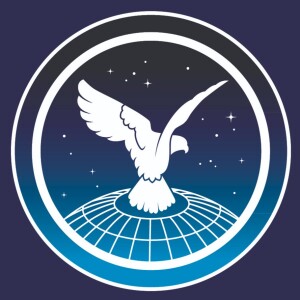
Friday Jun 08, 2018
Friday Jun 08, 2018
The civilian flyers of the ATA ferried more than 309,000 RAF aircraft during World War II, very often without instruments and a knowledge of the aircraft gained from a series of short flying notes. So doing, they saved valuable flying hours for the RAF’s pilots.
Leading glider pilot Philip Wills, was one of the first to join the new service in 1939 and went onto become the ATA’s second-in-command and Director of Operations. Full of stories of his time in the service, Wills shares his knowledge of how the service was rolled out, the day-to-day work of its pilots and their training. He also highlights how the organisation set standards for the future path of air accident investigation and pilot documentation through the development of their flying and ground handling notes – the one-stop-shop for those interested in how to fly World War II aircraft. A full set of the notes are held at the National Aerospace Library in Farnborough.
The Lecture took place on 5 April 1965. The podcast was edited by Mike Stanberry FRAeS and it was digitised thanks to a grant from the Royal Aeronautical Society Foundation.
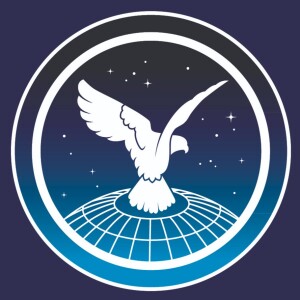
Friday May 18, 2018
Friday May 18, 2018
Engine pioneer Sir Harry Ricardo talks about his early career, the great men who influenced him and trends in engine development.
After discussing working in his Grandfather’s railway engineering company, Ricardo goes onto talk about his big opportunity, when in the middle of the First World War he designed and manufactured engines for the Army’s great new weapon, the tank.
Sir Harry also discusses many of the men who he influenced his work on diesel and petrol engines for both aeroplanes and cars, such as F. W. Lanchester, Sir Robert Waley Cohen of Shell, Rudolf Diesel and Ackroyd Stuart, before giving opinions of trends in gas turbine and combustion engine development.
The interview was conducted in 1961 by Rex Wailes for an article in the Institution of Mechanical Engineer's magazine, The Chartered Engineer. The podcast was edited by Mike Stanberry FRAeS and it was digitised thanks to a grant from the Royal Aeronautical Society Foundation.
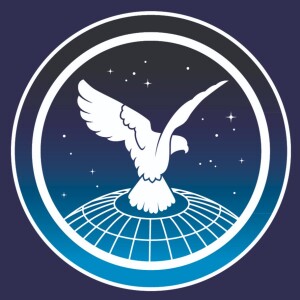
Friday May 18, 2018
Friday May 18, 2018
Packed with stories of the “Father of the RAF”, the then Chief of the Air Staff, Sir Dermot Boyle, pays tribute to the first Chief of the Air Staff. Presented less than two years after Trenchard’s death, Sir Dermot outlines Trenchard’s career first in the Army and then in the fledgling RAF and explains how the “giant amongst men” sculpted the new service ready for the challenges that would be brought by World War Two. Boyle’s lecture is peppered with stories illustrating the man’s impishness, kindness and humour.
This recording was of the Inaugural Trenchard Memorial Lecture, which was hosted by the Halton Branch of the Royal Aeronautical Society on 20th February 1958. The podcast was edited by Mike Stanberry FRAeS and it was digitised thanks to a grant from the Royal Aeronautical Society Foundation.





